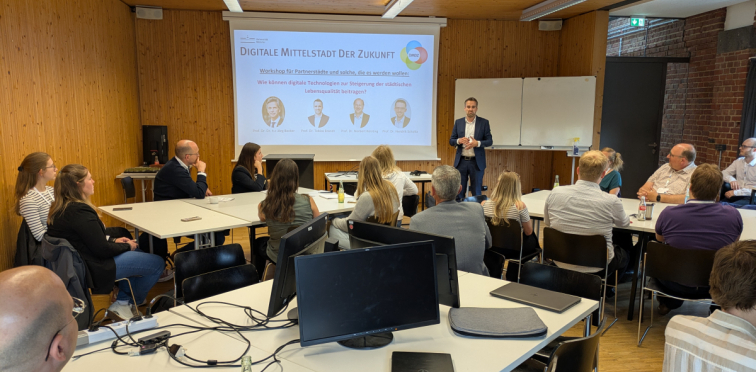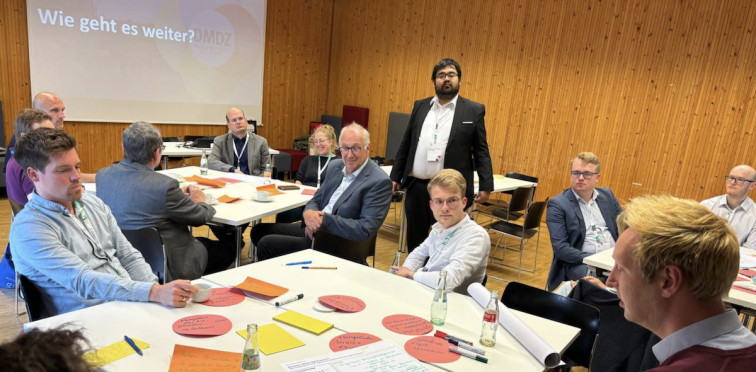The research group Future Digital Towns (FOR 5393), funded by the German Research Council DFG, investigates how mid-sized towns meet the challenges of digitalisation and develops digital instruments to strengthen their liveability. The research group focuses on the four central structural areas of a town: government & administration, economy, labour & energy, civil society & social services and, finally, education & culture.
The digital transformation as an ever-increasing networking of information and processes offers enormous potential for all areas of life and work. Many of today’s most pressing problems can be addressed through digitalisation, e.g. through the more sustainable use of existing resources. At the same time, however, digitalisation also poses major challenges for actors, especially if, for example, financial or material resources to implement digitalisation projects in a sustainable way are lacking. In this context, current research often discusses the transformation of cities, mostly metropolitan areas, through digitalisation, referred to as 'Smart Cities'. Proposed concepts are often based on the given, very narrow local structures, large administrations, and the associated large pool of resources.
However, towns outside of metropolitan regions, which have similar structural problems as large cities, but at the same time have specific characteristics that prevent a one-to-one transfer of smart city concepts, are out of sight. As a rule, mid-sized towns have 20,000 to 100,000 inhabitants, and it is precisely in rural areas, where there is an increasing number of towns of this type, that they have an important social, political and economic significance as a centre for even smaller towns and communities in the surrounding area. Towns therefore have a special identity which often leads to a particularly strong identification with the town and region for their inhabitants.
However, these towns are most severely affected by demographic and economic changes. Questions of mobility, demographic change in terms of the development of living and housing, economic development and attractive conditions for highly qualified specialists or the comprehensive range of educational and cultural offers pose particular challenges to towns. These challenges become even greater when these towns are characterised by different districts, each of which - to a certain extent - must be developed and supported individually.
In six sub-projects, the research group analyses specific challenges of towns and develops instruments with which these can be met, so that digital towns can be developed that preserve the identity of and identification with the town and region.







